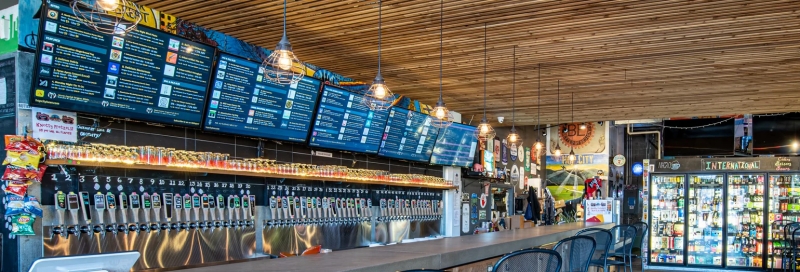Right now I am really getting burned out myself, from competing. Every other competition I'm either absolutely killing it or getting totally shut out. Most of it is absolutely my fault, bad packaging, bad beer, or otherwise, but some of it is just bad luck or poor competition organization or judges. And the cost is absolutely getting absurd. This year alone I'll probably end up spending close to $1000 just on competing alone. Competition is important to me and has been extremely important to me in the past 4 years, but it's time to change things up.
So I'll share with you my game plan, and then brainstorm some ideas for you.
- Take a year completely off from competing, and/or only submit one (1) entry per comp. (I will continue judging at comps and stay active in the community)
- Brew styles I normally wouldn't gravitate towards - lately I'm on an English kick for some reason
- Improved packaged beer consistency
- Understand my ingredients. We all know CSI D-90/D-180 and C-120 malts like Special B, Simpsons DRC, and CaraAroma all impart flavors like figs, plums, and burnt raisins. I want to unravel the mystery behind what flavors are imparted from which ingredients rather than simply re-brewing kitchen sink recipes that I know work
- Simplify my recipes. I brewed a lot of smash beers in the past year and a half and some of them shocked me. Munich malt can taste like caramel? Pilsner malt can taste like melanoidins? Yes, with the right, and fresh ingredients, and the right process, you don't NEED a kitchen sink malt bill or cheater malts
- Make my own candi sugar and experiment with it in Belgians
- Brew with different yeast strains than the ones I know work for me
I have a few other ideas for you
@elproducto from other times I got burned out:
1) Brew more smash beers
2) Brew more split batches - eg yeast A vs yeast B OR hop A vs hop B
3) Fill out scoresheets for your beers by yourself. Put your judging hat on. What is detracting from the drinkability of the beer? Is it too sweet? Too bitter? Is there too much of a certain flavor? Or were the ingredients just stale/old?
4) Brew beers that blatantly disregard style guidelines. Brew an American IPA that's low in IBU's. Dry the snot out of an Imperial Stout. There's no rules.
5) Dump beers that suck. I have no hesitation anymore. Every sip I have of a beer I've made that is mediocre makes me feel worse about myself. I will not keep a keg of a mediocre beer in my keezer when I can dump it and replace it with another very easily. Dumping bad beer is part of becoming a good brewer.


















































![Craft A Brew - Safale S-04 Dry Yeast - Fermentis - English Ale Dry Yeast - For English and American Ales and Hard Apple Ciders - Ingredients for Home Brewing - Beer Making Supplies - [1 Pack]](https://m.media-amazon.com/images/I/41fVGNh6JfL._SL500_.jpg)







